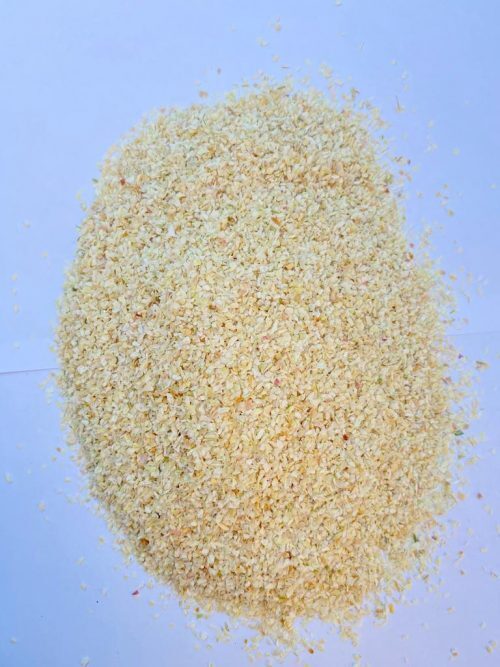Onion Minced l
Onion Powder l
Dehydrated Onion
The onion plant, Dried Onion
Name: dried Onion – Dehydrated Onion.
Family: Amaryllidaceae
Botanical name: Allium cepa
What is the Onion?
Onion plant is a very common plant which is grown and used all over the world. It is used widely in food preparation due to its unique taste. We can eat it raw and cooked as a vegetable, add it to sauces and delicious dishes, or make it pickle.
Onion powder is one of most distinctive spices which is made of dried onions and used in food seasoning with salt and other spices.
Bulk dehydrated minced onion is also a form of onion used in the preparation of some food varieties.
Onion powder can be made of white, yellow or red onions. It is one of the commercial goods that can be made at home.
Onion plant has been cultivated for about 7,000 years ago. It is implanted once every two years and is commonly cultivated on an annual basis. The height of modern types of onion reaches about 15- 45 cm.
What is the history of Onion?
• Old records didn’t define the native region of cultivating onions due to the extinction of wild onions and using of onions in many places that include East and West Asia.
• Most of archaeologists, botanists, and food historians have referred that the first regions of cultivating onions are central Asia or Persia.
• The onion may have been used in many places at the same time. It has been used for seasoning food for thousands of years in many countries including China, Egypt and Persia.
What are the uses of onion powder?
• Powder of onion plant is added to most of delicious dishes as spices, like pasta, pizza, and grilled chicken.
• It is one of the basic components of the seasoning beau monde.
• Powder of onion plant is also added to some foods that prepared for commercial purpose. For example, it is added to sauces, soups, and salad.
What are the forms of dried onion?
Dried onion powder is used commonly in food preparation for flavoring. To produce onion powder we can cut onion for slices and dry it. Powder of onion is made of the sharp types of onions to give strong scent. The forms of dried onions are:
Minced onions.
Kibbled onions.
Dehydrated white granules onions.
Dehydrated white powder onions.
What are the curative benefits of onions?
1. Due to its content of antioxidants, onions can protect healthy heart and regulate blood circulation.
2. Onions help to facilitate the discharge of urine.
3. Onions help to calm tension and improve vision.
4. Onions help to get rid of gases and relieve swelling of feet.
5. Onions can relieve the symptoms of pertussis.
6. Onions help to cure the symptoms of pneumonia.
7. Putting hot sticker of onions on kidneys and bladder can cure the obstruction of urine.
8. Cool patch of onion plant can remove any pain on the back of the head.
9. Onions can help to relieve the inflammation of the tonsils by putting it around the neck.
10. Onions is used to cure many kinds of inflammation such as of hemorrhoids, muscle, icing, fresh nails, and warts.
11. In mixture with honey, Onions can be used as an ointment for treating eye.
12. Onions help to purify the sediment of kidneys.
13. Onions have the ability to stimulate memory.
14. Onions help to relieve pains of joint and gout.
What is the value of onions for Ancient Egyptians?
Ancient Egyptians cared about onions a lot and made it a special element in their celebration of spring, along with salted fish, eggs and fruits.
Onion was found in many of the drawings on walls of the Pharaonic temples and tombs.
Ancient Egyptians have used onions as a symbol of resurrection and immortality.
One of the papyruses of “Manf” has narrated that one of the kings of the ancient state was fainted and that the chief priest ordered to put a green onion plant next to his head then he returned to consciousness. Hence Pharaonic Egypt knew the sanctity and importance of eating green onions.
The onion plant was found in tombs of ancient Egyptians since 3200 – 2780 BC.
More related articles:


